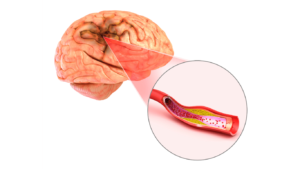Menopause marks a significant phase in a woman's life, symbolizing the end of her reproductive years. However, despite its inevitability, it often comes with uncertainties and a myriad of questions. What changes should one expect? How does it affect health and well-being? Understanding menopause is key to navigating this transition smoothly and maintaining quality of life. In this article, we aim to demystify menopause, addressing common concerns and providing practical advice.
What Exactly Is Menopause and When Does It Happen?
Menopause signifies a pivotal stage in a woman's life when her menstrual cycles come to a permanent halt, indicating the cessation of reproductive capabilities. This process is the culmination of a natural decline in ovarian function and hormonal production, particularly estrogen and progesterone. The onset of menopause is clinically confirmed after a woman has gone without a menstrual period for 12 straight months.
While the age at which menopause occurs can span a broad range, it most commonly takes place between the ages of 45 and 55. In the United States, the median age for reaching menopause is 51. Leading up to menopause, many women undergo a transition phase known as perimenopause. This period can extend for several years and is characterized by noticeable fluctuations in menstrual cycle regularity and the emergence of symptoms commonly associated with menopause.
These preliminary changes signal the body's gradual adjustment to decreased levels of estrogen and progesterone, laying the groundwork for menopause and the postmenopausal phase of life that follows. The duration and intensity of perimenopausal symptoms can vary significantly, underscoring the importance of individualized attention and care during this time.
Identifying the Signs and Symptoms of Menopause
The journey into menopause is unique for every woman, characterized by a range of signs and symptoms that can serve as early indicators of this transitional phase. Among the most commonly reported symptoms are irregular menstrual cycles, which may become unpredictable in timing and intensity. Hot flashes, a sudden feeling of warmth that spreads over the body and is often accompanied by sweating, are also frequent. These can occur at any time of day or night, potentially leading to disruptive night sweats and consequent sleep issues.
Mood swings are another symptom, where emotional responses may fluctuate widely and unpredictably, affecting a woman's sense of well-being and interpersonal relationships. Vaginal dryness, resulting in discomfort during sexual activity, reflects the declining estrogen levels associated with menopause. Other physical changes might include weight gain, particularly around the abdomen, and alterations in hair and skin texture, leading to dryness or thinning.
While these symptoms can pose challenges, recognizing them early can facilitate better management and adjustment strategies. Each symptom, from the more commonly discussed hot flashes and sleep disturbances to less frequently addressed issues like mood swings and vaginal dryness, underscores the body's adjustment to changing hormone levels. By staying informed about these potential signs, women can proactively seek guidance and support, easing the transition through menopause.
Understanding the Health Implications of Menopause

The decline in estrogen levels during menopause can lead to a variety of health concerns that require attention and management. One significant area of impact is bone health; with reduced estrogen, there is an increased vulnerability to osteoporosis, characterized by weakened bones and a heightened risk of fractures. This condition can severely affect a woman's quality of life, making prevention and treatment strategies critical.
Cardiovascular health is another major concern during the menopausal transition. The protective effects of estrogen on heart health diminish, potentially leading to an increase in cholesterol levels and a decrease in the elasticity of the blood vessels. These changes contribute to a greater risk of developing cardiovascular diseases, which are a leading cause of morbidity and mortality among postmenopausal women.
Moreover, the hormonal fluctuations of menopause can influence body composition changes, notably an increase in abdominal fat. This not only alters physical appearance but also carries significant health risks. The accumulation of visceral fat is associated with a higher likelihood of metabolic syndrome, a cluster of conditions that increase the risk for heart disease, stroke, and type 2 diabetes.
Given these implications, understanding and addressing the health impacts of menopause is paramount. Strategies for mitigating these risks include lifestyle modifications, preventive care, and, when appropriate, medical interventions. By focusing on these areas, women can take proactive steps to safeguard their health during and after the menopausal transition.
Navigating the Emotional and Mental Impact
The journey through menopause is not solely a physical one; it deeply influences mental and emotional health as well. As estrogen levels fluctuate, so too can a woman's emotional state, manifesting as mood swings, irritability, or episodes of anxiety and depression. These shifts can impact daily life and relationships, making it imperative to seek strategies for support and management.
Acknowledging these changes as part of the menopausal transition is the first step toward addressing them. Building a strong support network, incorporating practices that promote emotional resilience, and exploring therapeutic options can provide essential relief. Engaging in regular physical activity has been shown to enhance mood and reduce stress levels, while mindfulness practices such as meditation can help manage anxiety. For those experiencing more severe emotional distress, professional counseling or therapy offers a safe space to navigate these challenges.
It's also beneficial to openly communicate with loved ones about the emotional toll of menopause, fostering understanding and empathy within personal relationships. Seeking guidance from healthcare professionals can further illuminate personalized strategies to cope with these mental and emotional shifts, ensuring that every woman has the resources and support necessary to navigate this phase with strength and assurance.
Lifestyle Changes to Ease Menopause Symptoms
Implementing positive lifestyle modifications can play a crucial role in mitigating the discomforts associated with menopause. Engaging in consistent physical activity is paramount; it not only aids in managing body weight but also boosts mental health, reducing the severity of mood swings and depressive symptoms. A diet that emphasizes fruits, vegetables, whole grains, and lean proteins can offer the necessary nutrients to support a woman's body during this transition, with a particular focus on calcium and vitamin D to fortify bone health.
Staying well-hydrated is another simple yet effective strategy to combat menopausal symptoms. Water intake can help regulate body temperature, reducing the occurrence of hot flashes and supporting overall physiological functions. Incorporation of stress management techniques such as yoga, meditation, or even regular walks in nature can provide significant relief from anxiety and improve sleep quality, which is often disrupted during menopause.
Additionally, modifying dietary habits by reducing the intake of caffeine, alcohol, and spicy foods may offer relief from hot flashes and night sweats. Creating a serene and comfortable sleep environment, free from electronic distractions, can further enhance sleep quality, promoting physical and emotional well-being during menopause.
Embracing these lifestyle changes not only aids in easing menopause symptoms but also contributes to a healthier, more balanced life during and beyond this transformative phase.
Treatment Options for Menopause Symptoms
For those navigating the challenges of menopause, a variety of treatment strategies are available to alleviate discomfort and improve quality of life. Hormone replacement therapy (HRT) stands out as a particularly effective method for tackling symptoms such as hot flashes, night sweats, and vaginal dryness. While HRT can offer significant relief, it's important for women to discuss the benefits and risks with their healthcare provider to determine if it's the right choice for their unique situation.
Beyond HRT, there are alternatives that can address specific menopause-related issues. Low-dose antidepressants have shown promise in easing mood swings and depressive symptoms, providing an option for women who may not be candidates for hormone therapy. For bone health, medications designed to prevent or treat osteoporosis can be integral in maintaining strength and reducing the risk of fractures. Additionally, vaginal estrogen creams can offer targeted relief for vaginal discomfort, improving sexual health and comfort.
It's crucial to engage in open dialogue with a healthcare professional when considering these treatments. They can provide personalized advice, taking into account individual health histories and symptom profiles. This tailored approach ensures that each woman receives the most appropriate and effective treatment for her menopause symptoms, fostering a smoother transition through this natural stage of life.
The Importance of Support During Menopause

Navigating the menopausal transition is markedly easier when surrounded by a network of understanding and empathy. This support can come from a variety of sources, including family members who recognize the physical and emotional shifts occurring, and friends who may be experiencing similar changes. Beyond personal circles, healthcare professionals play a pivotal role, offering guidance, medical insight, and emotional support tailored to each woman's unique journey through menopause.
The benefits of connecting with others who are navigating the same life stage cannot be overstated. Support groups, whether convened in community centers or found online, serve as invaluable resources where experiences, advice, and coping strategies can be shared. Such environments foster a sense of belonging and understanding, helping to alleviate feelings of isolation or confusion that may accompany menopause.
Professional counseling is another avenue through which women can seek support. It provides a space to explore the emotional and psychological impacts of menopause in depth, offering tools and strategies to manage these changes effectively. Whether it’s dealing with mood swings, anxiety, or changes in self-image, professional guidance can equip women with the resilience needed to face these challenges head-on.
In essence, seeking and receiving support during menopause is a critical aspect of managing this transition effectively. It empowers women to approach this natural phase of life with confidence, backed by a network of support that uplifts and assists them through each step of the journey.
Menopause and Sexuality: Addressing Changes and Solutions
The transition through menopause can significantly impact a woman's sexual well-being. As estrogen levels decline, many experience symptoms such as vaginal dryness, which can lead to discomfort during intercourse, and a decrease in libido, potentially affecting intimate relationships. It's crucial for women to understand these changes are normal and manageable with the right strategies and interventions.

Open and honest communication with sexual partners is essential for navigating these changes. Sharing feelings and concerns can help partners understand and support each other, fostering intimacy despite physical changes. Additionally, the use of lubricants and vaginal moisturizers can greatly alleviate discomfort during sexual activity, making these experiences more enjoyable and less painful.
For those encountering persistent sexual health issues, consulting a healthcare professional is advisable. Treatments such as vaginal estrogen therapy may offer relief for symptoms like dryness and discomfort. It's important to explore these options with a doctor who can provide tailored advice based on individual health circumstances and preferences.
Engaging in regular, open dialogues about sexual health and prioritizing self-care can empower women to manage menopause-related sexual changes effectively. By addressing these issues directly and exploring available solutions, women can maintain fulfilling sexual relationships and a healthy sense of intimacy during the menopausal transition and beyond.
Preparing for Life After Menopause: Long-Term Health Considerations
Navigating the post-menopausal period involves a strategic focus on long-term wellness and the proactive prevention of age-related health issues. Ensuring consistent health monitoring through routine medical screenings becomes increasingly important. These assessments should specifically target conditions more prevalent in post-menopausal women, such as osteoporosis and cardiovascular diseases, alongside regular mammograms for early detection of breast cancer.
Adopting a lifestyle centered around physical activity is critical, as it helps maintain bone density, manage weight, and support cardiovascular health. A balanced diet rich in nutrients, particularly those beneficial for bone strength and heart health, is equally vital. Incorporating foods high in calcium, vitamin D, and omega-3 fatty acids can make a significant difference in managing the health challenges that often accompany post-menopausal life.
Stress management also plays a key role in ensuring a high quality of life after menopause. Techniques such as mindfulness, meditation, and engaging in hobbies or activities that bring joy can effectively mitigate stress and enhance mental well-being.
By placing a strong emphasis on these strategies, women can not only tackle the health concerns associated with this phase but also pave the way for a vibrant, healthy, and fulfilling life in the years that follow.






